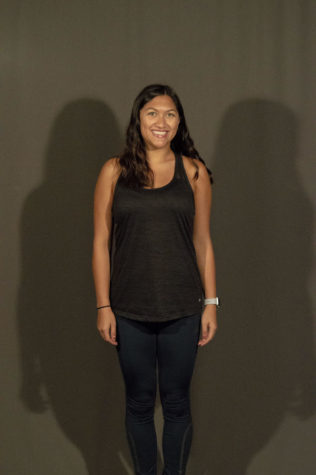Diagnosis: Tech Fever
October 9, 2017
In today’s culture, iPads, phones, computers, and TV’s are necessities for daily life, especially here at NHS. So, whether it be a student scrolling through Twitter on their phone, or typing out a paper on their iPad, the bright lights they stare at for hours at a time are taking a toll on some people’s health.
It’s common for people who use technology frequently to experience the troublesome physical effects it may have on a person’s health. For example, Christine W. Sindt identifies “Computer Vision Syndrome” as the complex of problems associated with excessive screen time, including eyestrain, blurred vision, and dry eyes.
Junior Fiorella Rubio deals with these consequences of technology regularly. She believes these effects are due to her excessive technology use, or at least her technology use is worsening them.
“Some symptoms I’ve experienced when being on my phone or iPad too long are irritation of the eyes, migraines, and blurry vision,” Rubio said.
Digital Responsibility is an organization dedicated to teaching young people how to use technology responsibly. According to them, technology users blink less when looking at their device, which can cause irritation and eye straining. Rubio claims that these physical issues are linked to her increase in technology use.
“[My eyes] feel strained especially when I’m concentrating on an assignment,” Rubio said.
The increase in technology in our culture has also made us grow an attachment to de vices according to Rubio.
Now Rubio’s attachment to her phone is affecting her sleep too. She claims that her phone is a constant distraction at night because she checks it every time she gets a notification. Her sleep is disturbed by her constant urge to look at her phone.
NHS nurse Holly Elliott claims that she hasn’t had students come in specifically because of issues with technology, but she still agrees that technology affects students physically.
“The use of technology can cause your brain to not ‘shut off’ as easily when it’s time for sleep or rest,” said Elliott, “Most physicians recommend turning off the TV, phone, iPad, etc. at least 45 minutes to an hour before bedtime to help your brain and body relax.”
Overall, technology use is responsible for some students’ sleep deprivation, eye irritation, headaches, and other physical issues according to NHS nurse Gina Salem. She also agrees that technology is affecting students.
“I think [technology] prevents good night sleep [and], can cause nearsightedness. Everything is right in your face, so your eyes never learn to adapt to look at far distances,” Salem said.
Both nurses agree that a good solution would be to set time limits on how much technology students use each day. They also say it is also a good idea to take a break from staring at screens and do eye stretches, so the eyes can practice focusing on something that’s not right in front of them. People can stretch their eyes by holding their finger an inch from their face, focusing on it, then moving it further away while continuing to focus. Blinking, yawning, and exposing eyes to natural light help to moisturize them after staring at a screen dries them out. Rubio stands by her opinion of technology’s effect on her health,
“I believe an excess of anything is bad for you,” said Rubio, “whether it be too much food or too much technology.”



